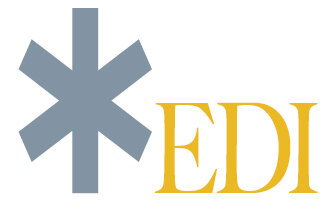I often get asked this question from those embarking on applying the Homeodynamic Recovery Method (HDRM). Presumably it gets asked because we’ve designed the entire eating disorder treatment system as a get-in/get-out medical stabilization process and surrogates for “recovered” status are limited to a body weight and acceptable biomarker readings (resting heart rate, blood work and the like). If everything you’ve experienced to date has framed your process of recovery as something you do rather than something you are, it’s understandable you ask: “When will I be done?”
HDRM is not a doing thing, it’s a being thing. It’s more like learning a new language— or to be more specific, like re-learning a profoundly lost language. It gets easier as the years go by to be fluent and to even think in that language, but if you’re tired, stressed, or faced with vocabulary that’s specific to a particular profession, it’s easy to slip.
I know it’s really difficult to pry yourself away from using your weight being the definitive marker of your health status, but the longer you cling to that cultural fallacy (and that’s all it is), then the longer you live in a half-life of being beholden to false fears.
Staying completely energy balanced is the mother tongue of everyone around you who has never experienced an eating disorder first-hand. And we live in this weird world where all those natural speakers pretend that they actually speak the language of restriction.
They talk about their diets, their exercise regimes, their eating healthy, their getting back in shape...as though they really do manage to create energy deficits the way you do. So anxious and panicked are you (which is the eating disorder jammed into your threat identification system), you often fail to notice how those around you, in the world without eating disorders, actually make no sense at all.
If you’ve never had a chance to see the video above, it’s a really well-constructed piece on what English sounds like to non-English speakers. If you weren’t really paying attention, you’d think (given the inflection and pace) that they are speaking English.
That is the world of so-called healthy living— just gibberish masquerading as real language. All those around you without eating disorders actually thrive in their mother tongue of energy balance and it’s purely an action-based language. All the while, they speak gibberish at each other about their status-signaling healthy living.
Embracing HDRM for your recovery process is about ignoring the gibberish around you and developing a reconnection with your own mother tongue of energy balance. Those without eating disorders cannot sever ties with that energy balance; but for you it has likely become a completely foreign language where you don’t even recognize the basic words anymore, let alone are you able to construct a complete sentence.
It feels awkward, unnatural, severely anxiety-inducing and generates constant second-guessing:
— “Am I doing this right?” —
It does get easier as the years go by. You will get to be an absolute expert in picking up on the gibberish around you: “That’s not English,” or more to the point, “That’s not Energy Balance.” You won’t have to concentrate so hard to be fluent in Energy Balance.
But the restriction gibberish will always sound a bit more familiar to you, especially in times of stress or distraction.
I get criticized for speaking in terms of “never being recovered from an eating disorder,” on the grounds that it denies individuals their own agency and that no third party has the right to override an individual’s own definition of being recovered.
I absolutely agree with people’s rights to define their own state of health. But I am wary of anyone touting their “cure” to others as I believe that the rights of those convinced of that cure are as, if not more important than the individual’s right to self-identify as “cured,” or “recovered.”
All that is to say, having peer mentorship during your remission practice is invaluable but do consider clinging a bit more tightly to those who treat an eating disorder as the chronic condition that it is. No one is ever done with practicing remission.
And just as it’s really tough to learn a new language when everyone around you is still speaking the old one— they want to practice their gibberish on you as you’re such a native speaker of restriction— consider carefully what environments and people support your efforts to be fluent in Energy Balance and then work to be surrounded by those things and people as much as possible.


